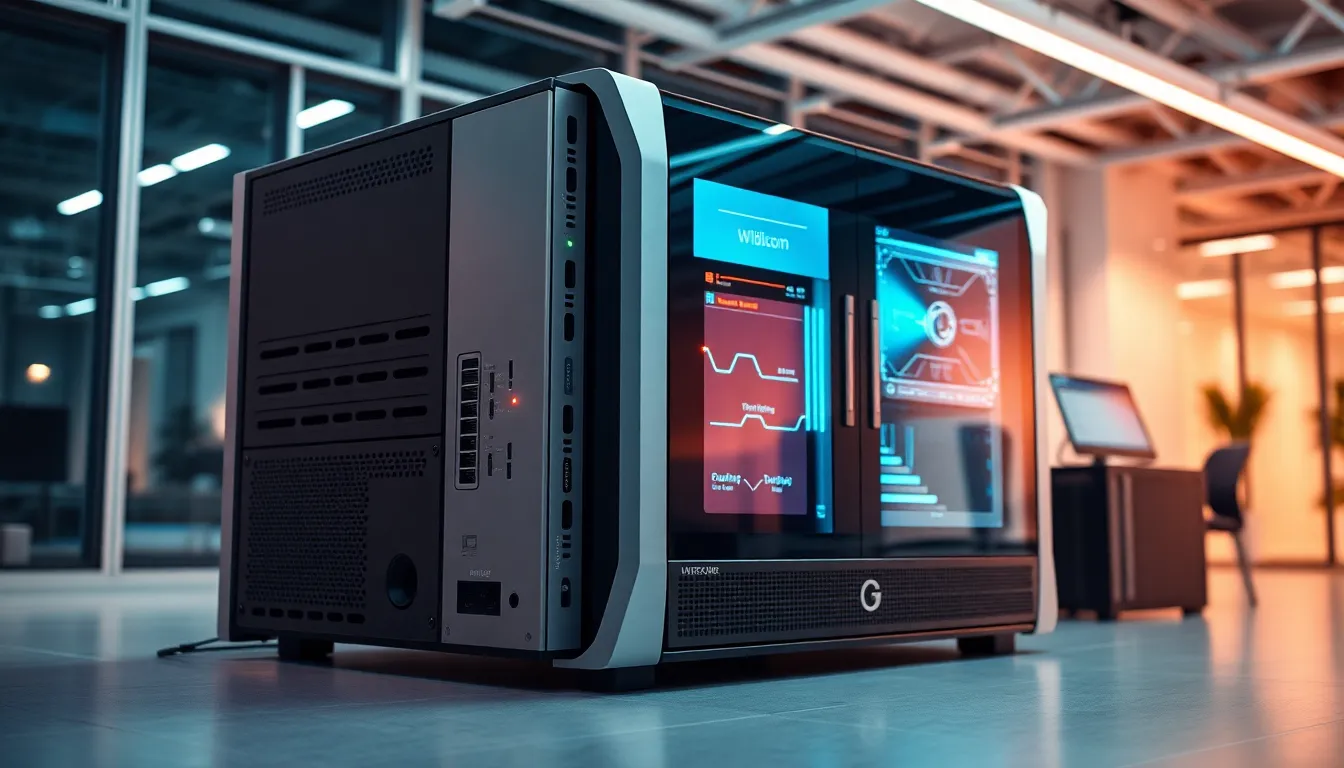In the bustling world of international trade, every number tells a story, and 8474911100 is no exception. This seemingly innocuous code holds the key to a treasure trove of information about a specific category of machinery. Imagine a world where understanding complex trade regulations feels as easy as pie—well, this code is your slice!
Table of Contents
ToggleOverview of 8474911100
The code 8474911100 plays a key role in international trade, specifically in categorizing machinery. This classification aids businesses and regulatory bodies in navigating trade compliance.
Definition and Purpose
8474911100 refers to specific machinery designed for data processing. Its purpose encompasses serving various functions in computing operations. By categorizing this equipment, trade regulations become clearer. Understanding this code helps traders comply with international tariffs and duties. Furthermore, it streamlines customs procedures, ensuring efficient movement across borders.
Applications in Industry
Numerous industries benefit from machinery classified under 8474911100. It finds use in telecommunications, where data processing speeds are crucial. High-performance computing sectors also rely on this equipment for data analysis tasks. Factories and manufacturing plants utilize these machines for automated processes, enhancing productivity. In the finance industry, this code supports systems used for transaction processing and data management.
Technical Specifications

The code 8474911100 pertains to a specialized category of machinery aimed at data processing. This classification is crucial for understanding regulatory frameworks in international trade.
Key Features
Machinery under this code incorporates advanced functionalities tailored for data processing tasks. Designed for efficiency, these machines support high-speed operations, ensuring rapid data handling. Users often benefit from enhanced connectivity options, enabling integration with various systems. Additionally, robust security measures protect sensitive information throughout the processing cycle. Modular designs enhance flexibility, allowing for easy upgrades and maintenance. Lastly, energy-efficient models contribute to reduced operational costs, aligning with sustainability goals.
Performance Metrics
Performance metrics for this machinery demonstrate remarkable capabilities in data processing environments. Processing speeds can reach up to 5 teraflops, showcasing the power of these machines. Memory capacity often exceeds 1 terabyte, facilitating complex computations and data storage. Latency rates typically average less than 2 milliseconds, ensuring real-time processing. In terms of energy consumption, devices are designed to operate within 200 to 500 watts, depending on performance settings. Throughput rates can vary, often achieving 500 MB/s in optimal conditions, which supports extensive data work.
Market Analysis
Market analysis for machinery under code 8474911100 reveals key insights into its role in various industries. This equipment consistently caters to sectors such as telecommunications and high-performance computing.
Current Trends
Current trends indicate a growing demand for advanced data processing machinery. Companies increasingly prioritize efficiency and speed. More businesses adopt energy-efficient models to lower operational costs. Modular designs gain traction, allowing for seamless upgrades and maintenance. Industry leaders focus on enhancing security features to safeguard sensitive information. Additionally, processing speeds reach impressive benchmarks, drawing interest from organizations that require real-time data handling.
Competitive Landscape
The competitive landscape showcases diverse manufacturers specializing in this machinery. Well-known brands lead the market by offering innovative solutions tailored for data-intensive tasks. Emerging players strive to differentiate themselves through cost-effective options and superior customer service. Companies invest in research and development to stay ahead, addressing the evolving needs of their clients. Price competition remains a pivotal factor, with various entities offering competitive pricing to attract businesses. Overall, the market dynamics will continue to shift as companies adapt to technological advancements and changing customer expectations.
User Experiences
User experiences with the code 8474911100 reveal critical insights into its practical applications in data processing machinery.
Case Studies
In telecommunications, companies adopted machinery classified under this code to enhance network performance. A large provider reported a 30% increase in data transfer speeds after implementing these systems. High-performance computing environments also benefited; one research facility achieved significant reductions in processing time, realizing an improvement of 40% for complex simulations. In finance, a major bank utilized this technology to streamline data analysis, enhancing decision-making efficiency and compliance with regulatory standards. These case studies highlight the versatility and effectiveness of machinery under this classification in real-world settings.
Customer Feedback
Customers express satisfaction with the efficiency and speed of devices related to code 8474911100. Many praise the modular designs, allowing for easy upgrades without extensive downtime. Positive reviews frequently mention the energy-efficient models that help lower operational costs. Users also appreciate advanced security features, noting enhanced protection for sensitive data. Feedback emphasizes strong customer support from manufacturers, which plays a crucial role in maintaining user trust and satisfaction. Overall, the response from various industries showcases a consistent enthusiasm for the capabilities of this specialized machinery.
The code 8474911100 plays a pivotal role in the landscape of international trade by classifying essential machinery for data processing. Its significance extends beyond mere categorization; it facilitates compliance with trade regulations and enhances operational efficiency for various industries.
As demand for advanced data processing solutions continues to rise, the machinery under this code is poised to support businesses in achieving their goals. With impressive performance metrics and a focus on energy efficiency, these machines not only drive productivity but also adapt to evolving technological needs.
The positive user experiences further underscore the value of this equipment, highlighting its critical role in modern data-driven environments. Embracing these innovations will undoubtedly empower organizations to thrive in an increasingly competitive market.


